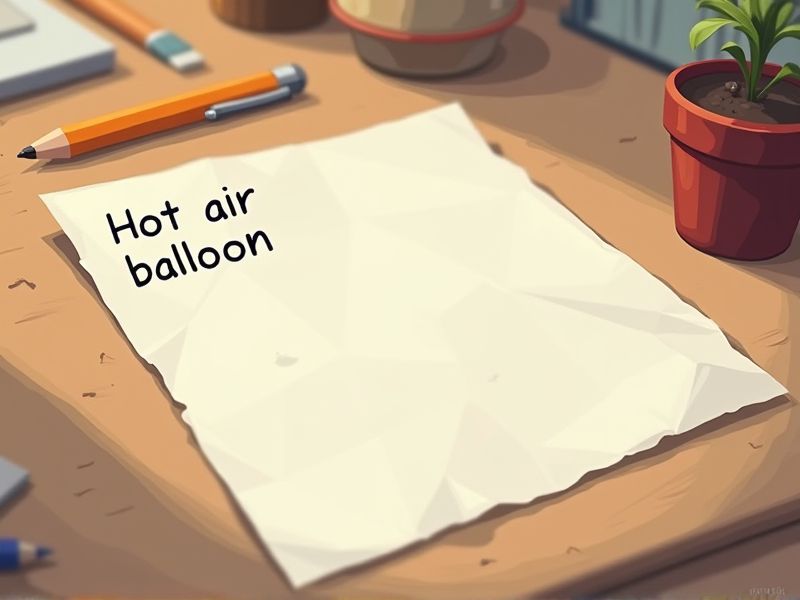
Becoming a hot air balloon pilot requires a strong understanding of aerodynamics and weather patterns, as well as the ability to navigate safely through the skies, leading to the necessity of specific certifications. The Federal Aviation Administration mandates certain qualifications to ensure pilots can handle unexpected challenges and maintain passenger safety. Certifications verify that pilots possess the technical knowledge and hands-on experience crucial for managing these lighter-than-air crafts. Essential certifications needed for a hot air balloon pilot include these key qualifications.
FAA Hot Air Balloon Pilot Certificate
The FAA Hot Air Balloon Pilot Certificate is necessary to ensure pilots meet safety standards, reducing risks associated with flying. Certification provides comprehensive training, equipping pilots with knowledge and skills for different weather and land scenarios. It mandates a standardized level of expertise, enhancing communication and coordination during multi-balloon events. Certified pilots inspire public confidence, encouraging participation in ballooning activities.
FAA Class 3 Medical Certificate
The FAA Class 3 Medical Certificate is needed for a hot air balloon pilot to ensure the individual meets the necessary health and fitness standards for safely operating the balloon. This certificate verifies that the pilot does not have any medical conditions that might impair their ability to control the aircraft effectively. Ensuring the pilot's physical and mental fitness directly impacts passenger and public safety during flights. Regulations mandate such certificates to maintain consistent safety standards across aviation activities, including ballooning.
Commercial Balloon Pilot License
A Commercial Balloon Pilot License ensures pilots have the necessary skills and knowledge to safely operate hot air balloons, minimizing risks to passengers and the craft. It provides a standardized training regimen which covers meteorology, navigation, and emergency procedures specific to balloon flight. Insurance companies often require pilots to hold this license to provide coverage, impacting operational feasibility. Regulatory bodies mandate this license to enforce compliance with aviation safety standards and legal frameworks.
Private Balloon Pilot License
Obtaining a Private Balloon Pilot License ensures a pilot's proficiency in handling emergency situations specific to hot air ballooning. This license demonstrates a pilot's understanding of meteorological factors crucial for safe flight operations. Regulated training and certification reduce the risk of accidents, thereby enhancing passenger safety. Legal requirements mandate this license to ensure compliance with aviation standards.
Balloon Flight Instructor Certification
Balloon Flight Instructor Certification ensures that hot air balloon pilots possess the necessary knowledge and skills to safely operate the aircraft. With this certification, pilots are better equipped to handle various atmospheric conditions and emergency scenarios, reducing the risk of accidents. The certification process reinforces adherence to safety protocols, which protects passengers and the pilot. Well-trained instructors contribute positively to the industry by maintaining high safety standards, which helps boost public confidence in hot air balloon rides.
Advanced Balloon Navigation Certification
The Advanced Balloon Navigation Certification equips hot air balloon pilots with critical skills for safe maneuvering in diverse weather conditions. Improved navigation techniques reduce the risk of accidents, ensuring passenger safety. Regulatory bodies often require advanced certification to maintain high safety standards across the aviation industry. Enhanced training prepares pilots for emergency situations, fostering confidence and competence in complex flight scenarios.
Aviation Weather Awareness Certification
Without Aviation Weather Awareness Certification, hot air balloon pilots may struggle to interpret critical weather data, potentially leading to unsafe flight conditions. Certification provides pilots with the skills to assess weather patterns that can affect balloon stability and altitude control. Understanding atmospheric conditions through this certification helps in planning safe flight paths, thereby reducing the risk of accidents. Weather-related incidents in aviation highlight the necessity for comprehensive training in meteorological assessments for all air vehicle operators.
First Aid & CPR Certification
A hot air balloon pilot requires First Aid & CPR certification because emergency situations may arise at high altitudes where immediate medical assistance isn't available. Certification equips pilots with the skills to address health issues or injuries that passengers or crew might experience during a flight. Turbulent weather conditions can sometimes lead to accidents or health emergencies, making it vital for the pilot to respond promptly. Passenger safety enhances trust and can influence the decision of individuals when choosing operators for hot air balloon experiences.
Crew Resource Management Certification
Crew Resource Management (CRM) Certification for hot air balloon pilots enhances communication and teamwork skills, crucial for handling complex flight situations. It reduces human error by fostering a culture of safety and improving decision-making processes. The certification also prepares pilots to better manage unexpected events, ensuring passenger safety. Regulatory compliance often mandates CRM training, aligning with industry standards for risk management.
Aviation Safety Management Systems Certification
Aviation Safety Management Systems Certification helps ensure that hot air balloon pilots adhere to recognized safety protocols, reducing the risk of accidents. This certification provides pilots with the necessary knowledge to identify and mitigate potential hazards specific to ballooning. Regulatory bodies require certification to maintain a standardized safety culture and compliance with international aviation standards. Enhanced trust and credibility result from certification, encouraging passenger confidence in the operator's commitment to safety.
Summary
When you ensure a hot air balloon pilot obtains certifications, you enhance their skills and safety awareness. Certified pilots are more likely to prevent accidents due to their comprehensive understanding of balloon operations. A certified pilot often has improved navigation and emergency-handling skills. This recognition can also boost public trust, leading to increased business opportunities for ballooning activities.
